
world_matters
.pdf
7)What may happen if humans hand over important decisions to machines?
8)What science fiction books and films about robots do you know? What role do robots play in people’s life in these books or film?
9)What is your personal attitude to robots?
10)Would you like to have a domestic robot? Why?
6f File in the table
The reasons to trust the robots |
The reasons to mistrust the robots |
|
|
6g Read the quotations below. Choose any statement and comment on it.
1)‘The sad thing about artificial intelligence is that it lacks artifice and therefore intelligence.’ (Jean Baudrillard)
2)‘Some people worry that artificial intelligence will make us feel inferior, but then, anybody in his right mind should have an inferiority complex every he looks at a flower.’ (Alan Kay)
3)‘No computer has ever been designed that is ever aware of what it’s doing; but most of the tome, we aren’t either.’ (Martin Minsky)
4)‘Man has made many machines, complex and cunning, but which of them indeed rivals the working of his heart?’ (Pablo Casals)
5)‘The greatest task before civilization at present is to make machines what they ought to be, the slaves, instead of the masters of men.’ (Henry Ellis)
6)‘As machines become more and more efficient and perfect, so it will become clear that imperfection is the greatness of man.’ (Ernst Fischer)
7)‘The real problem is not whether machines think but whether men do.’ (B.F.Skinner)
7. Writing: A letter of complaint
7a Read the letter. Find words and expressions that mean:
a light |
a written promise |
to move |
to return money |
is broken |
digital information |
7b Complete the letter with these linking words.
52

finally, secondly, firstly
99 Raven Lane
Shepton, BY9 2AZ
Digital Direct Ltd,
Industrial Estate,
Newton, SY8 9BV
Dear Sir/Madam,
I bought a Conex digital camera from you last month. It cost &400 and has a six-month guarantee (number 9887654).
1_____, it is very difficult to download pictures to my computer.
2_____, the quality of the pictures is not good enough. The photos are too dark and not clear enough. 3_____, the flash of the camera does not work. Could you please refund my money? I enclose the camera with this letter. I look forward to hearing from you.
Yours faithfully,
CHamilton
Caroline Hamilton
7c Read the advertisement. Write notes about possible problems with the robot.
Domus XX20
This new domestic robot has three programmes: it guards your house; it cleans the floors; it interacts with people. The XX20 is fast and intelligent. It can move around the house and climb the stairs. And it only costs £595!
Domus Products Ltd, 31 Station Road, Norton NX9 9BD
7d Use your notes to write a letter of complaint.
7e Work in pairs. Read your partners’ letters and compare your problems.
53

Unit 5
Around the world
In this module you will:
Read about a famous explorer
Talk about your travelling experience
Test your knowledge about famous holiday destinations
Practise talking about your travel experience
Listen to a radio holiday programme
Write a formal letter to a holiday company
Learn how to plan a holiday
Useful vocabulary:
Nouns |
journey, travel, trip, flight, mountaineer, trekker, desert, |
Adjectives |
nightlife, advert / advertisement, price |
available, fascinating, wonderful, delightful, crowded, still, |
|
Phrases and |
pale, bare |
to book a holiday, tourist attraction, holiday destination, once- |
|
collocations |
in-a-lifetime sightseeing tour, means of travelling, high season, |
|
half board, boat hire |
54
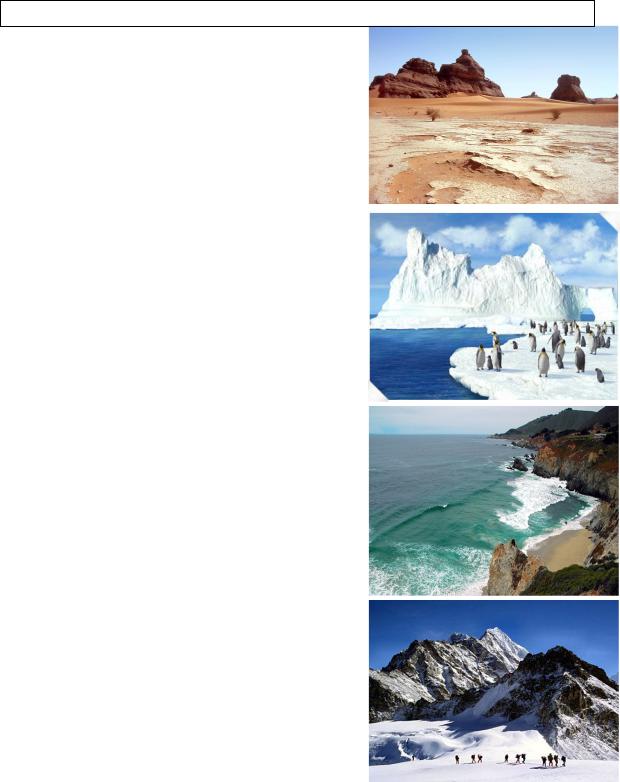
1. Lead-in
1a Look at the information about four travel books by Michael Palin. Match the books with photos A-D.
1)Pole to Pole is about a 141-day journey from the North Pole to the South Pole.
2)Himalaya is the story of a journey across
the world’s greatest mountains, from |
A |
Afghanistan to China. |
3)Sahara is about a journey across the desert that is the size of the USA and covers ten different countries.
4)Full Circle is the story of a 50,000km trip round the Pacific Ocean. The writer visited 17 countries on four continents.
1b These extracts come from the four |
|
||
books. Match each extract with one of the |
B |
||
books. |
|
|
|
A. The air is still, and a watery sun gives the |
|
||
place a lonely feel. The temperature is minus |
|
||
25 degrees Co. They say this is warm. |
|
||
B. We are out of the crowded Asian Pacific |
|
||
area and into the great empty spaces of |
|
||
Australasia. In Java there are 850 people for |
|
||
every square kilometer of land; in Australia, |
|
||
just over two. |
|
|
C |
C. Everest Base Camp is nowhere near as |
|||
romantic as it sounds. In high season, |
|
||
between June and August, this area is packed |
|
||
with mountaineers and trekkers. This year |
|
||
there were 32 separate expeditions. |
|
||
D. Morocco has changed colour. The greens |
|
||
and golds of the north have become a line of |
|
||
pale yellow trees running beside the road. |
|
||
Beyond them, the land is brick-red and bare. |
D |
||
1c Read the book extracts and find |
|||
adjectives with these meanings. |
|
||
Extract A |
1 not moving |
2 sad and alone |
|
Extract B |
3 full of people |
4 with nothing in it |
|
Extract D |
5 light, not strong colour 6 not covered, nothing there |
||
|
|
55 |
|

1d Match the adjectives in ex. 1.c with the best pair of nouns below.
1 |
_____ city/train |
3 |
_____ room/bottle |
5 |
_____ feet/wall |
2 |
_____ face/colour |
4 |
_____ person/life |
6 |
_____ lake/water |
2. Reading
2a What famous explorers do you know?
2b Read the interview with Michael Palin and put the questions 1-6 in the right place (a-f).
1 Which countries have your visited?
2 How many books have your written?
3 What have you learned from your different trips?
4 What’s the best place that you’ve visited?
5 When did you become a travel writer?
6 Have you eaten any unusual things?
Around the world with Palin
by Stuart McCarthy
Michael Palin has visited many countries and he has become one of our most popular travel writers. I asked him about his fascinating life. a)________________________________________________________________
When I was 42, in 1988. I made a TV series – Around the world in 80 days – and wrote a book about that trip, and so I started this great career.
b)_______________________________________________________________
I’ve written six travel books – one for each TV series.
c)______________________________________________________________
Perhaps you should ask which countries I haven’t visited! I’ve travelled from the North Pole to the South Pole, and across every continent. A very lucky man!
d)_______________________________________________________________
Oh, definitely. I’ve eaten insects and a snake. I ate that when I was in China, in 1985. It tasted like chicken.
e)_______________________________________________________________
Ah, my favourite place is in Peru – the river near Machu Picchu. It’s the most wonderful, magical place I’ve ever been to in all my travels.
f)_______________________________________________________________
The most important thing that I have learned is that people are warm, kind and fun all over the world, and that a smile really is universal.
2c Are this sentences true or false?
1 He wrote his first travel book after he made a TV travel series.
56

2 He has made six TV travel series.
3 He has never visited South America.
4 He ate insects in 1985.
5 His favourite place is in Africa.
6 He thinks there are friendly people everywhere.
2d Look at these sentences and answer the questions.
a)I made a TV series when I was 42.
b)I’ve travelled across every continent.
c)I’ve written six books.
d)I wrote a book in 1988.
1 Which sentences give the time when Michael Palin did something? 2 Which tense do we use when we give the time we did something?
3 Which tense can we use when we do not give the exact time we did something? 4 How do we form the present perfect and the past simple tense?
2e Complete this personal travel history with the correct verb form.
I 1)_______(visit) many different countries but I 2) ________ (not be) to South America and Africa – I hope to go there soon. I first 3) ________ (go) abroad in 1991. I went to France with my school and two years later I 4) ________ (visit) Spain – my favourite country. I also love Asia. I 5) ________ (work) in China and I 6) ________ (visit) Thailand and Japan. I 7) ________ (work) in China in 2003 – I 8) ________ (have) a wonderful time because it 9) ________ (be) so different from my country. Finally, last year I 10) ________ (study) at film school in New Zealand – that was great!
3. Speaking
3a Do you know what places are shown in the pictures A-F? Find the places’ names in the list below in ex. 3.b.
A 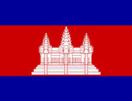 B
B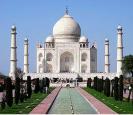 C
C 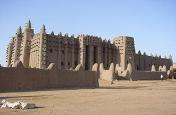
57
D 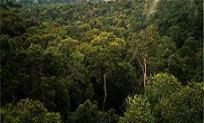 E
E  F
F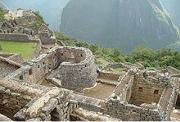
3b Work with a partner and match the places with the encyclopedia entries about them.
With your partner discuss the following:
have you ever been to any of them, or seen any of them?
what else do you know about them?
|
1 Heathrow Airport |
|
9 Mount Fuji |
|
|
|
2 the North Pole |
|
10 Uluru (Ayers Rock) |
|
|
|
3 the South Pole |
|
11 Easter Island |
|
|
|
4 Table Mountain |
|
12 the Grand Canyon |
|
|
|
5 the Coliseum |
|
13 Machu Picchu |
|
|
|
6 the Taj Mahal |
|
14 the Empire State Building |
|
|
|
7 the Great Wall of China |
|
15 the Amazon Forest |
|
|
|
8 Angkor Wat |
|
16 the Djenne Mosque |
|
|
|
|
|
|||
A a steep-sided gorge carved by the |
|
K a volcanic island in the Pacific, |
|||
Colorado River in the United States in |
|
discovered on Easter Sunday, 1722; |
|||
the state of Arizona |
|
noted for the remains of an aboriginal |
|||
|
|
|
|
culture, which includes gigantic stone |
|
|
|
|
|
figures. |
|
B a large isolated desert rock, |
|
L the largest mud brick building in the |
|||
sometimes described as the world's |
|
world and is considered by many |
|||
largest monolith, in the Northern |
|
architects to be the greatest |
|||
Territory of Australia: sacred to local |
|
achievement of the Sudano-Sahelian |
|||
Aboriginal people. Height: 330m. Base |
|
architectural style |
|||
circumference: 9 km |
|
|
|
||
C a moist broadleaf forest that covers |
|
M a ruined Incan city in the south of |
|||
most of the Amazon Basin of South |
|
Peru |
|||
America |
|
|
|
||
|
|
|
|||
D a 102-story landmark Art Deco |
|
N an extinct volcano in central Japan: |
|||
skyscraper in New York City at the |
|
the highest mountain in Japan, famous |
|||
intersection of Fifth Avenue and West |
|
for its symmetrical snow-capped cone. |
|||
34th Street |
|
Height: 3776 m. Also called: Fujiyama |
|||
58

E the southernmost point on the earth's |
O a large area of ruins of the former |
axis, at the latitude of 90°S |
Khmer Empire in Cambodia |
F a white marble mausoleum in central |
P a wall in China from Gansu to the |
India, in Agra: built (1632-43) by the |
Gulf of Liaodong, constructed in the |
emperor Shah Jahan in memory of his |
3rd century BC as a defense against the |
beloved wife, Mumtaz Mahal |
Mongols. Length: over 2400 km; |
|
height: 6 m; width: 6 m |
I the largest and busiest airport in the |
Q a mountain in South Africa, |
United Kingdom |
overlooking Cape Town and Table |
|
Bay: flat-topped and steep-sided. |
|
Height: 1087 m (3567 ft.) |
G the northernmost point on the earth's |
R an amphitheatre in Rome built about |
axis, at a latitude of 90°N |
75-80 A.D |
 3c Listen to a woman talking about one of the places. Which place is it? Track 12.
3c Listen to a woman talking about one of the places. Which place is it? Track 12.
 3d Listen again. What does she say about it? Make notes.
3d Listen again. What does she say about it? Make notes.
1 first view of it:
2 visits to it:
3 reasons for liking it:
3e Work with a partner to share your travelling experience.
Student A: Talk about your last holiday for about one minute.
Student B: Listen to your partner. Ask questions to get more information.
3f Choose six places from ex. 3.a that you would like to visit (you have to choose from at least three continents). Think of the reasons for visiting them. Then tell a partner about them.
4. Language skills
4a Work with a partner to discuss the following.
Do you prefer to go abroad for your holidays or stay in your own country?
What kinds of places do you like to visit on holiday?
If you could travel anywhere in the world for your holiday, where would you go? Why?
 4b You will hear four young people being interviewed on a radio holiday programme. As you listen, write down which statement ( a-e) each speaker (1-4) makes. There is one statement you do not need. Track 13.
4b You will hear four young people being interviewed on a radio holiday programme. As you listen, write down which statement ( a-e) each speaker (1-4) makes. There is one statement you do not need. Track 13.
a I’ve always enjoyed going to different places. ___
b I’ve always been afraid of flying. ___
59

c I always go on holiday with my parents. ___
d I don’t like spending too much money on a holiday. ___
e I like dancing and having a good time. ___
4c In pairs, find out from each other the following information about your summer holidays. Make a note of your partner’s answers.
favourite / usual holiday destination
usual means of travelling there
length of time spent there
activities to do there
holiday companions
type of food eaten
feelings about the holiday
4d Now find another partner and report what you first partner said. Use the verbs say and tell, and don’t forget to make all the other necessary changes, for example, to the tenses.
5. Listening
5a Discuss the questions with a partner.
What do you know about ‘ethical travel’?
Does ‘ethical travel’ mean:
a)behaving yourself while travelling
b)caring for the places (and people) you visit
c)taking a keen interest in the place’s history and culture?
 5b Listen to the conversation about ‘ethical travel’ and check if your guesses were right. Could you add some more main features of ‘ethical travel’? Track 14.
5b Listen to the conversation about ‘ethical travel’ and check if your guesses were right. Could you add some more main features of ‘ethical travel’? Track 14.
 5c Listen to the conversation once again and fill in the missing words or phrases from the box below (there are three phrases you don’t need).
5c Listen to the conversation once again and fill in the missing words or phrases from the box below (there are three phrases you don’t need).
A |
the effect |
F |
solve problems |
B |
tips |
G long plane journey |
|
C be more aware of |
H at their cost |
||
D |
causing problems |
I |
running water |
E |
‘package’ and ‘all inclusive’ |
J |
form of income |
1. Most of us have probably heard of ____________ holidays but when I asked Bush House, not many of us had heard of ‘ethical travel’.
60

2.Trisha was talking about _____________ that tourists can have on the people who live in the countries they visit.
3.We also heard how the local people usually have very poor ‘infrastructures’, for example, little access to transport, electricity and __________ .
4.We’ll be able to visit those countries in the future without _____________.
5.The governments of many developing countries encourage tourism as a valuable ___________ .
6.According to Trisha, knowing what’s going on could lead tourists helping to
___________ rather than adding to them.
7.Do you think that ___________ - giving extra money to low-paid workers – keeps their wages low?
5d With a partner, discuss the problem of ethical tourism and suggest some ways of traveling without causing problems to the local people.
6. Extra Activities: Planning a holiday
6a You and your partner have got $500 each and seven days holiday. Look at the holiday adverts below and decide where you want to go. You can go on more than one trip. Look at these phrases. Can you remember how to continue?
6b Look at these phrases and divide them into things a customer or a travel agent would probably say. See if you can finish the phrase with suitable words.
I’d like…
I prefer…
Yes. But this one is more… than
I’d rather…
I don’t mind…
It looks …
We could …
I’d like to book …
Certainly, when would you …?
I’m afraid that’s not available, but you could …
I was wondering if …?
Could you tell me …?
Can I pay by …?
6c Work with a different partner. Student A is a travel agent and Student B wants to book the holiday. Use the phrases in 6.b and the information in the adverts to help you.
6d Find another partner and tell them about the holiday you have chosen, and when you are going.
61
